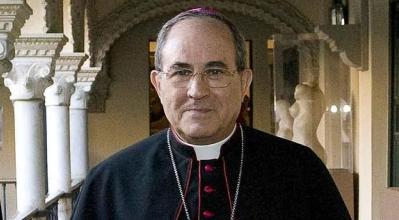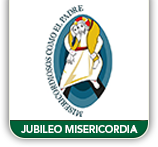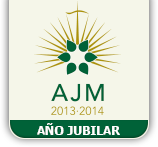Archbishop of Seville, SENTINELS DAY OF PRAYER CONTEMPLATIVE NUNS

SENTINELS DAY OF PRAYER CONTEMPLATIVE NUNS
26, V, 2013
Dear brothers and sisters:
We celebrate this Sunday the Solemnity of the Holy Trinity. In it we confess our faith in the Holy Trinity, we adore his powerful drive and give glory to the Triune God because we can enter into the intimacy and richness of the Trinitarian life. In this Sunday, contemplate this mystery unspeakable and the whole Church is confession of the glory of God, worship and thanksgiving to the Holy Trinity, which opens its doors, introduces us to their privacy and makes partakers of the divine life .
Lest we forget that the glory of the Triune God is our deepest vocation, living as children of the Father, brothers of the Son and anointed by the Spirit, on the Solemnity of the Holy Trinity Church celebrated every year the day “Pro Orantibus” , day specially dedicated to contemplative monks and nuns. On this day, the church and each of us back them with our prayers and our affection how much we owe to these brothers and sisters, that makes your life a gift of love, a gift to the Holy Trinity and constant prayer the Church and for all of us.
The contemplative life belongs to Christianity entails deeper and has in its charter, its policy statement, his most radical justification in the Gospel, in which we read: “If thou wilt be perfect, go, sell what you possess and give to the poor and follow me “(Mt 19:21) The father of the contemplative life in the West was San Benito in the first half of the sixth century, in Subiaco, not far from Rome, built a monastery, giving life to a fraternal community founded in the primacy of the love of Christ, in which prayer and alternate work harmoniously in praise of God.
Civil Historians have highlighted the outstanding contribution of St. Benedict and the Benedictines to the formation of European culture, the advancement of agriculture, science and the arts through its monasteries. The decisive factor, however, in the life of St. Benedict is the search for God: “Quaerere Deum”. From this perspective, it is well understood that synthesizes expression of life program of his monks: “Nihil Christi praeponere love! ‘,’ Prefer nothing to the love of Christ” (Rule, IV, 21), which is more important that the family, future projects, career, money, fame or glory.
The Archbishop of Seville
From the Benedictine rule in the Middle Ages, there are many families contemplative nuns dedicated to prayer and contemplation. Our Archdiocese has the privilege of having thirty-nine monasteries, all female. They are a treasure that should never go away and we should all not only estimate and artistic values they cherish. Sometimes economic visions appear prevalently guess when the future of our monasteries. He often speaks of “add value” their buildings, pointing almost always economic returns for tourism, which can never be an immediate objective or preferential, but rather a sequel.
If we suppress the dynamism of monasteries of contemplative life, the museum would become a number in a few monuments whose beauty is dull and identity all their own: to glorify God through constant prayer of the community , the daily Eucharist dignísimamente held, the solemn and beautiful singing of the Liturgy of the Hours and the mere existence of the nuns, who reminds us that God alone is God, that God alone suffices, and show us the perennial values, as silence, the love of solitude, fraternity, mortification, gratuity, gift, hospitality, service to the poor and joy, which are the authentic values that give consistency to our lives.
But there is another aspect that I would not overlook: our monasteries are a torrent of supernatural power for the Church and for the world. St. Therese of Lisieux, a Carmelite, Doctor of the Church, one of the greatest figures in its history, died in 1897 at the age of 24, we wrote that the contemplatives are the “heart of the Church”, as per she live, pray, sacrifice and immolate, being for the world a precious wellspring of energy and supernatural fecundity, actually this invisible and intangible, but certainly the most important for those who believe in the Communion of Saints. The monks and nuns are not useless or strange, then, to the secular city, contributing in their own way, in a way which was mysterious, to building a more just, fraternal and human as God dreamed.
While I congratulate our contemplative nuns and assure them of our prayers and affection, for all my fraternal greeting and my blessing.
+ Juan Jose Asenjo Pelegrina
Archbishop of Seville






